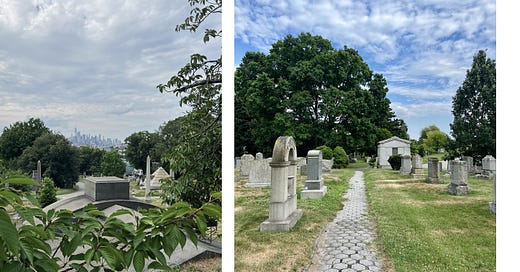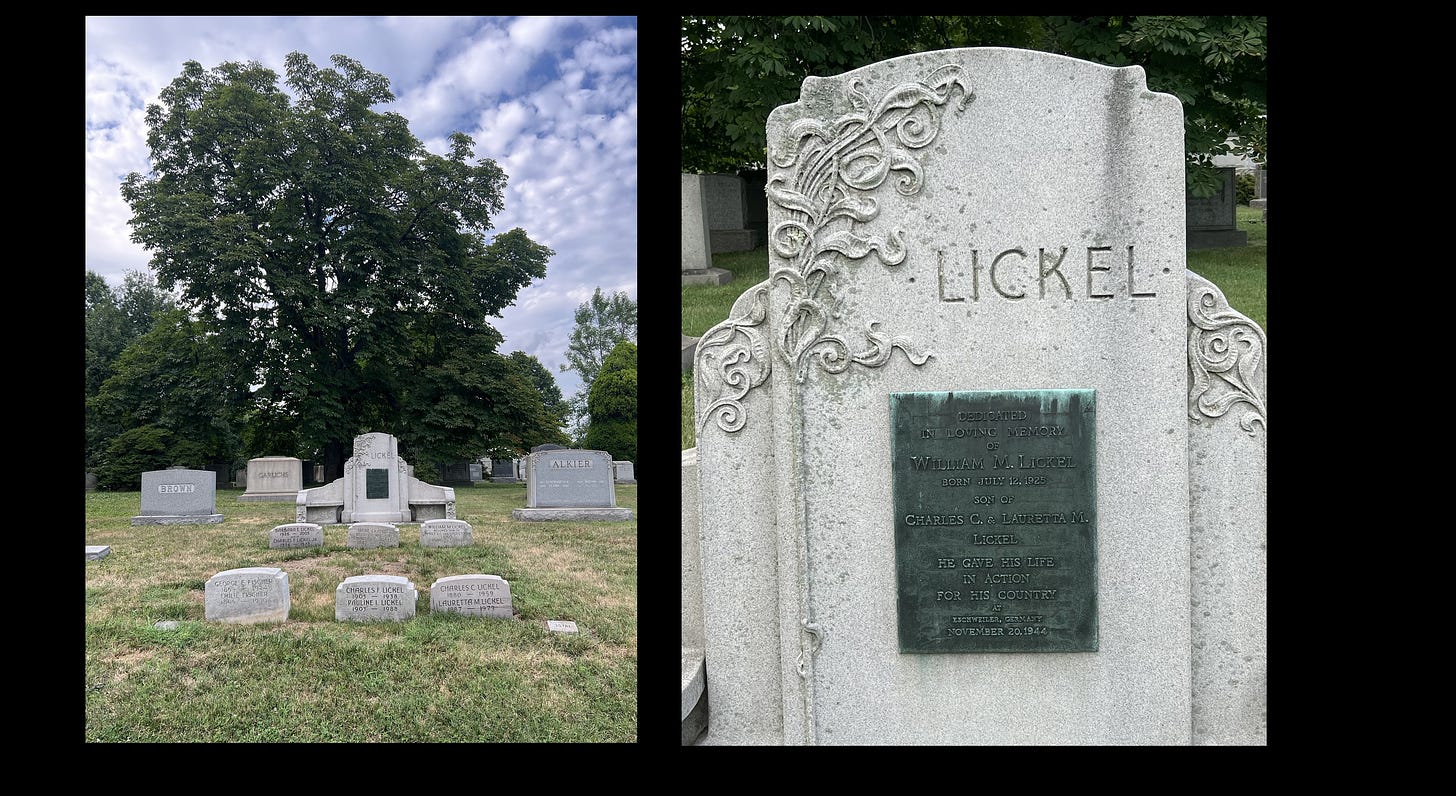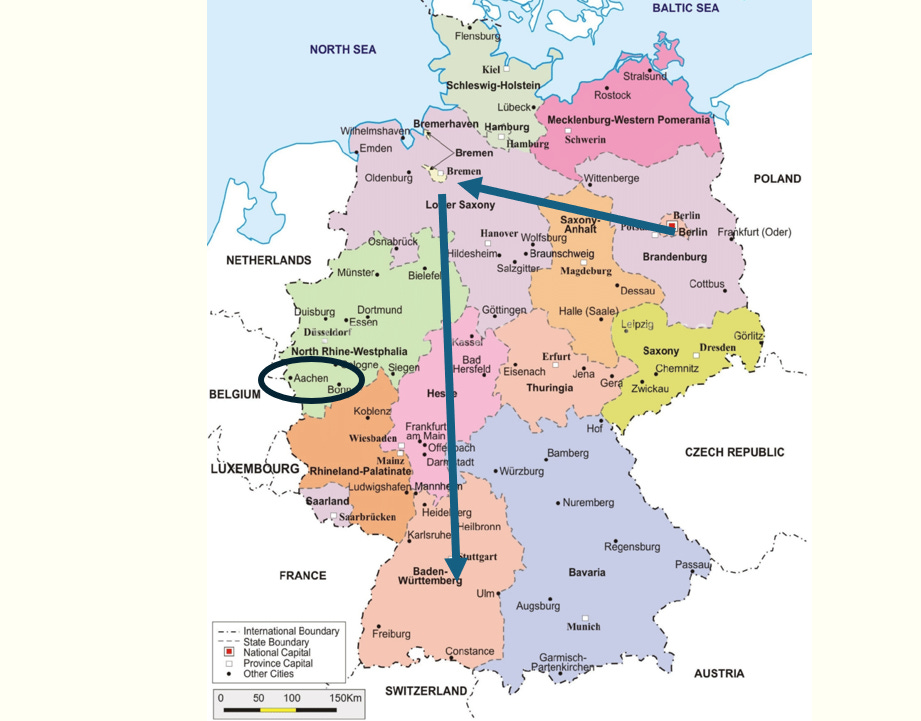Green-Wood Cemetery, Opa, the Writer's Oddness, “Leave Malaya”
"Synchronicity is an ever-present reality for those who have eyes to see." - Carl Jung
On Sunday, I will fly to Berlin for my bi-annual Germany trip. I have mixed feelings about it. I want to spend more time with my family, yet these tours can feel like loops while I long to go south.
I’ve been procrastinating on making plans; instead, I went for long walks and explored new corners of New York. My favorite was Green-Wood Cemetery in Brooklyn. It’s perhaps the most peaceful spot I’ve visited in the city, sheltered from traffic noise by plenty of trees. Something odd happened that day, something that made me reconsider my plans.
I walked randomly among the stones and trees, following the cemetery’s path by feeling. A few times I stopped to investigate stones and plaques; the latter commemorated the Battle of Brooklyn which took place on the cemetery’s hill.
Towards the end of my walk, one spot drew my attention. It was a group of headstones, the Lickel Family. Behind them was a large slab in memory of William Lickel who died in action in World War 2 in Eschweiler, a small town near Aachen, Germany.
Something stirred in me that I couldn’t explain. I was far from home, yet was vividly connected to what it meant to be German, to be tied to a most ugly chapter of history. I felt overcome with sadness and prayed.
I’ve never been to Eschweiler. But someone in my family has.
About a decade ago, a man in my mother’s hometown cleared out an attic and discovered a box of old letters. It was Feldpost, letters sent home by my maternal grandfather, Opa Alois, and his brother during WW2. The man scanned the letters and turned them into a self-published book.
I didn’t know my grandfather well. He was born in 1916, and I in 1986. He had survived the war and stomach cancer. His hearing was bad. I remember visiting his Werkstatt, a cavern-like workshop in the basement filled with every wrench and file imaginable. But usually, we spent more time chatting with my grandmother while he took a nap after lunch or listened to music.
He passed away in 2005. When I was handed a copy of the Feldpost book during COVID, I gained a glimpse at a chapter of his life we’d never talked about. Somehow these letters felt significant, but I could never figure out why.
Last week, I pulled the book off the shelf again. Turns out that after years on the Eastern Front, my grandfather was around Eschweiler and Aachen in October and November 1944.
I have no idea what this means, whether it means anything at all. I’m not even sure why I’m writing this. I just can’t get it out of my head. Until a couple of weeks ago, I had never been to a cemetery in New York. Then, somehow it felt important. So I went. My upcoming trip will take me from Berlin to Bremen, then all the way south to Tübingen (followed by the Alps, probably). I have a train ticket almost straight past Aachen and Eschweiler.
Should I cancel the ticket and spend a day in Aachen instead? Should I try to visit Eschweiler? I don’t know. But the thought keeps returning and when that happens, when subtle feelings persist, I try to pay attention. Anything could be a step on the way south.
I plan on traveling a lot more and will try to regularly share what I’m up to and things I read that sparked curiosity or joy.
Make time for Tom Morgan’s Accelerating Wisdom Series filled with potentially life-changing ideas — like attractors.
“The world is “combinatorially explosive”, which means there are too many options to test with trial and error. Attractors are the way evolution narrows our options to good choices. … we literally experience attractors as what we are curious about, drawn to, love or simply find interesting.”
Also be sure to check out Ted Gioia’s new project: 12-Month Immersive Course in Humanities.
The following observation on the nature of the writer is from novelist Frederick Forsyth’s memoir/collection of anecdotes Outsider (only recommended if you’re a Forsyth fan or spy novel enthusiast):






